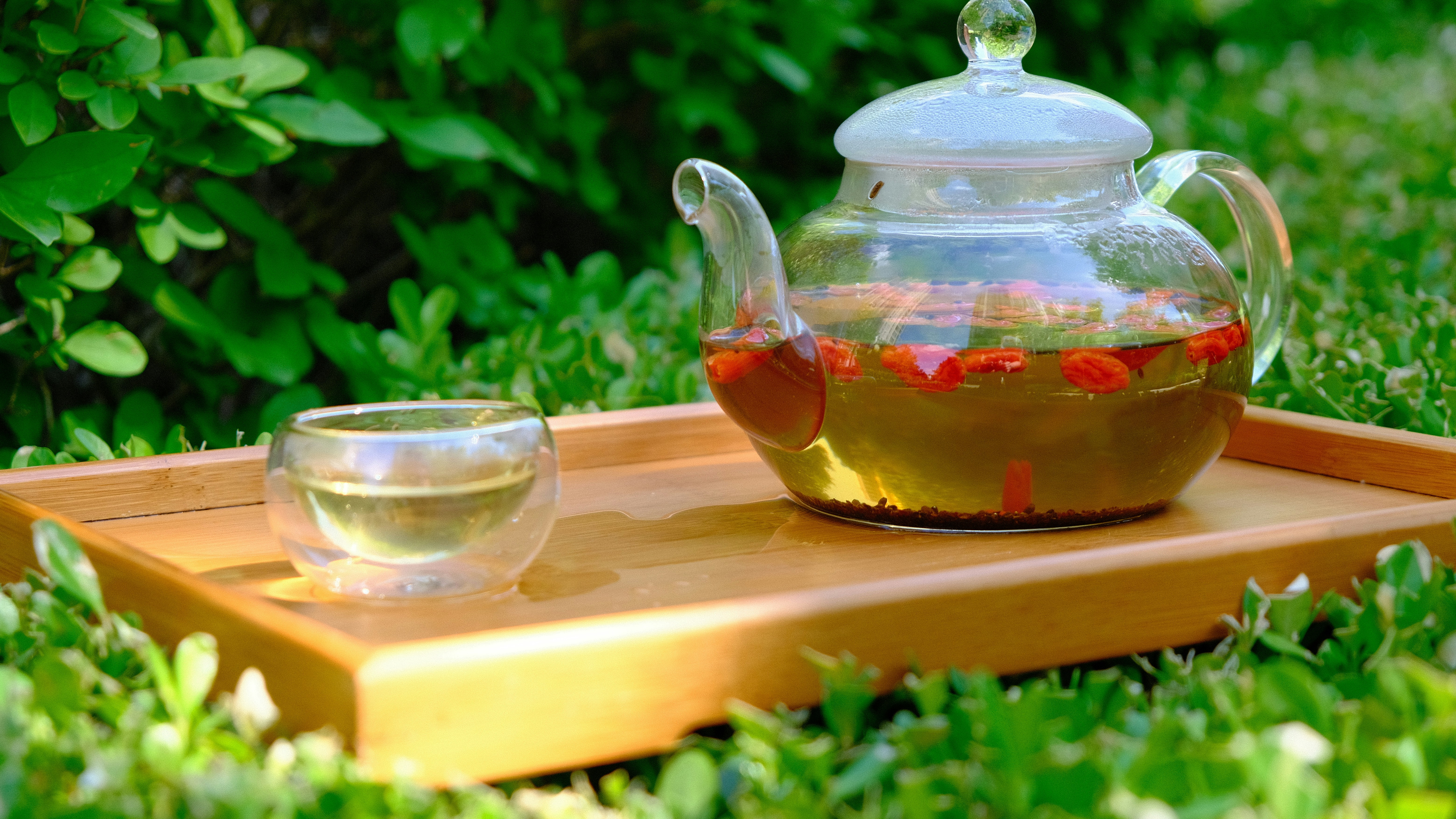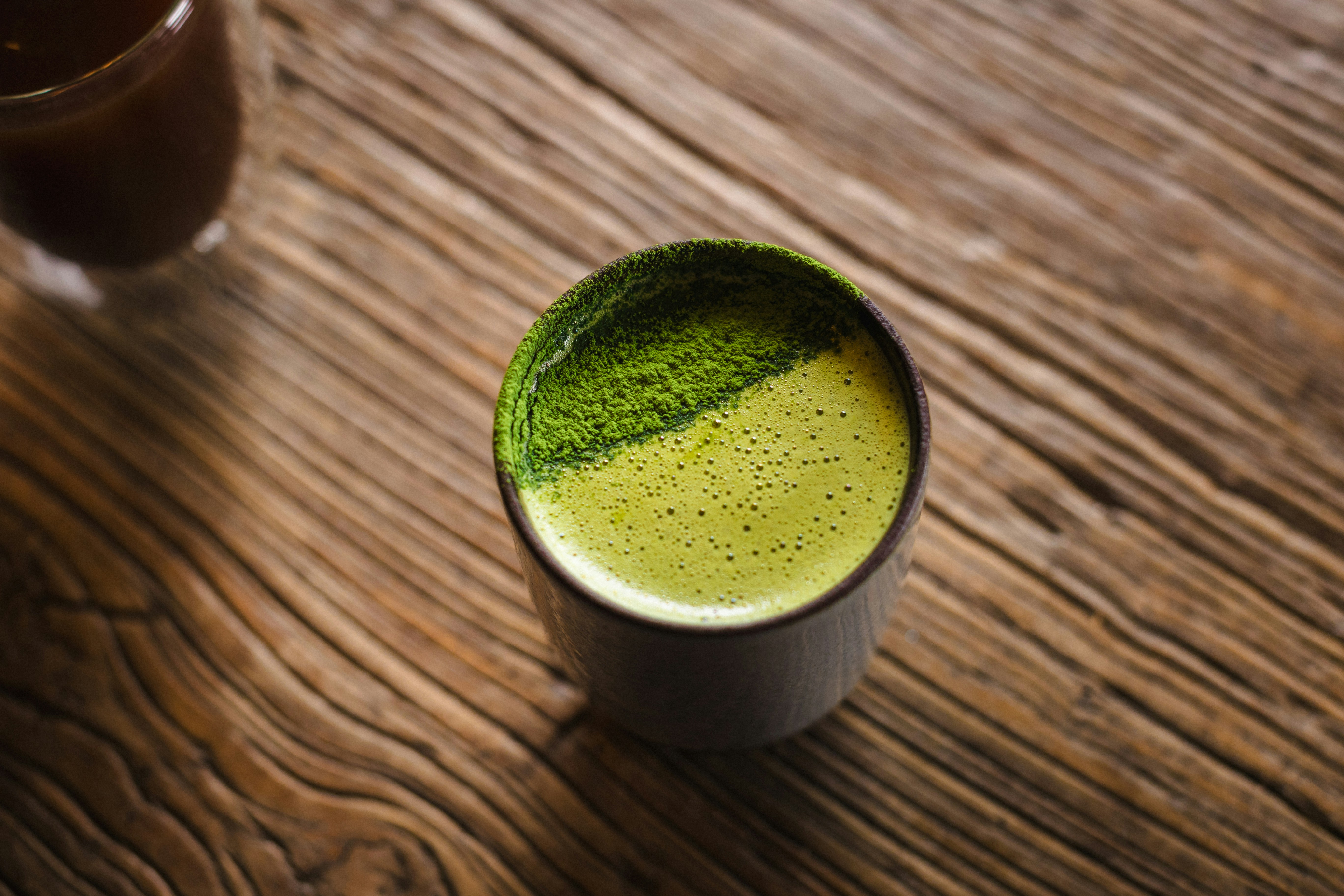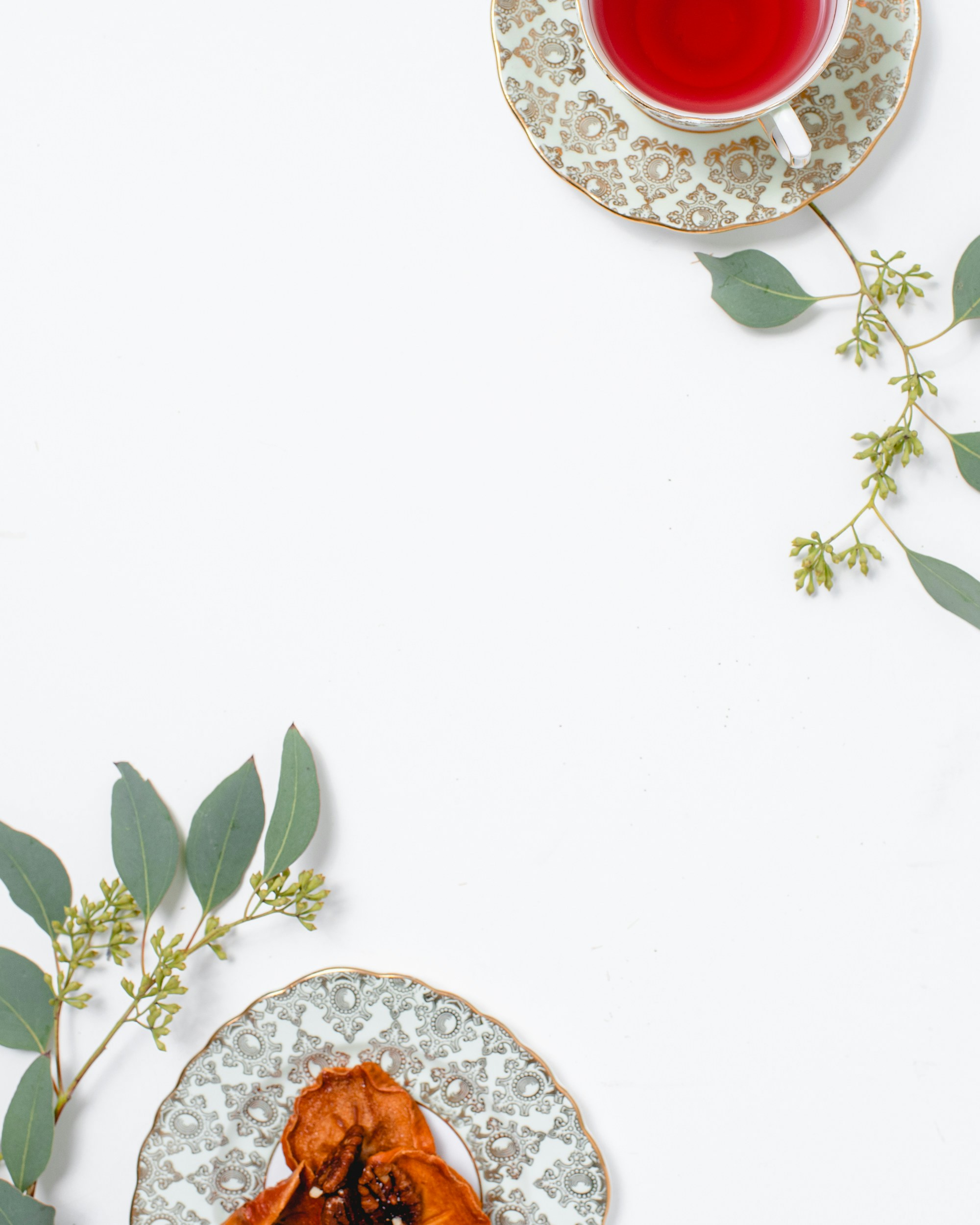Introduction: A Deeper Dive into the World of Tea and Spirituality
Tea, a timeless beverage with origins stretching back millennia, transcends mere hydration; it represents a rich cultural tapestry interwoven with spiritual significance. Across diverse cultures, the rituals surrounding tea preparation and consumption have evolved into mindful practices that foster reflection, community, and a profound connection to the present moment. For countless individuals, the act of brewing and savoring tea offers a sanctuary, a respite from the complexities of modern life. My personal journey with tea began during a particularly challenging period, where I discovered solace in the warmth of a cup cradled in my hands. This simple act became an invitation to embrace the present, to savor not only the delicate flavors but also the tranquility that enveloped me, fostering a deeper connection to my inner self.
Historically, tea has been deeply ingrained in social and spiritual traditions. The Japanese tea ceremony, a meticulously choreographed ritual, embodies respect, harmony, and tranquility, offering a pathway to spiritual insight. In China, tea drinking is often intertwined with meditative practices, enabling individuals to establish a deeper connection with their surroundings and their inner selves. These time-honored traditions illuminate the transformative power of tea, encouraging practitioners to slow down, appreciate the present, and cultivate a heightened sense of awareness. The fragrant steam rising from the cup acts as a symbolic bridge, connecting the tangible world with the deeper realms of existence, inviting a sense of peace and contemplation.
Engaging in tea rituals nurtures mindfulness, fostering an enhanced sense of presence and awareness. By consciously participating in the preparation and consumption of tea, individuals embark on a journey of self-discovery that promotes emotional clarity and spiritual insight. The nuanced flavors of the tea, whether herbal infusions or traditional varieties, dance across the palate, while the warmth of the liquid provides comfort and grounding. This sensory experience serves as a gentle reminder to breathe deeply, appreciate the present moment, and cultivate a deeper awareness of one’s inner landscape. Exploring tea as a vehicle for spiritual well-being unlocks a rich history and personal narrative, enriching our daily lives and fostering a profound connection to the present.
The Rich Tradition of Tea: A Global Journey Through Cultures and Customs
Tea transcends its role as a mere beverage; it represents a ritual steeped in history and cultural significance across the globe. Each region boasts unique traditions surrounding tea preparation and consumption, reflecting local customs, philosophies, and spiritual practices. In Japan, the traditional tea ceremony, known as “Chanoyu,” emphasizes mindfulness, the beauty of simplicity, and the cultivation of a deep connection between host and guests. This ceremony is not simply about drinking tea; it is a meditative practice that fosters a heightened sense of awareness and appreciation for the present moment, emphasizing harmony, respect, and the interconnectedness of all things.
In China, tea holds profound spiritual dimensions, with various regions showcasing their distinct styles and ceremonies. The “Gongfu Tea Ceremony,” for example, focuses on the art of brewing and savoring tea, emphasizing the intricate relationship between the tea drinker and the tea itself. The quality of the water, the type of tea leaves, and the brewing technique converge to create an experience that transcends mere consumption, inviting a mindful engagement with nature and the present moment. This practice encourages a deep appreciation for the subtle nuances of tea and its connection to the natural world.
The United Kingdom, renowned for its afternoon tea tradition, highlights the social and communal aspects of tea consumption. This practice, which has evolved over centuries, embodies a designated time for connection, conversation, and the strengthening of social bonds. Tea served during these gatherings often serves as a comforting ritual that promotes relaxation and bonding among family and friends, creating a sense of community and shared experience. Regardless of one’s cultural background, the act of sharing tea becomes a conduit for enhancing spiritual well-being, allowing individuals to pause, reflect, and connect with others and themselves on a deeper level.
Through these diverse ceremonies, tea emerges as a potent symbol of serenity and connection, bridging cultures and fostering mindfulness across traditions, enriching our lives and promoting a sense of global community.
Health Benefits of Tea: Nourishing Body, Mind, and Spirit
Tea has long been revered not only for its exquisite flavor but also for its extensive health benefits that nourish the body, mind, and spirit. The physiological effects of tea are widely attributed to its rich composition of antioxidants, vitamins, and minerals, which contribute to overall health improvement. Green tea, renowned for its high concentration of catechins, has been linked to reduced inflammation and improved cardiovascular health, acting as a powerful preventative measure against chronic diseases.
Furthermore, tea is often recognized for its psychological health benefits. Herbal varieties, such as chamomile and lavender, are known for their calming effects on the nervous system, promoting relaxation and reducing stress. Research indicates that the ritual of brewing and enjoying tea can significantly reduce stress and anxiety, providing a moment of tranquility amidst the demands of a fast-paced life. The simple act of sipping tea can serve as a mindfulness practice, allowing individuals to reconnect with themselves and their surroundings, fostering a deeper sense of presence and awareness.
Experts emphasize the importance of incorporating a daily tea-drinking habit as part of a holistic approach to well-being. Integrating tea into one’s lifestyle transcends the physical benefits; it nurtures the soul and fosters a sense of inner peace. The warmth of a cup of tea can evoke feelings of comfort and connection, making it an ideal companion during moments of reflection or social gatherings. For those seeking spiritual harmony, tea acts as a nurturing elixir, merging the benefits of nourishment and tranquility in perfect balance.
Mindfulness and Tea: Cultivating a Meditative Practice for Inner Peace
Tea-drinking can serve as a powerful mindfulness practice, fostering a deep sense of presence, awareness, and connection to the present moment. The act of preparing and enjoying tea can transform a simple routine into a meditative ritual, allowing individuals to slow down, quiet the mind, and connect with their inner selves. To cultivate this practice, it is essential to focus on the various sensory elements involved in the tea experience: the sound of boiling water, the aroma of the tea leaves, the warmth of the cup in your hands, and the subtle flavors that unfold on your palate.
To create an effective tea ritual, begin by selecting a quiet space free from distractions. Engage your senses fully by observing the colors and textures of the tea leaves as you measure them into the teapot. Listen attentively to the sound of the water as it heats and bubbles, and breathe deeply as the steam rises, carrying the fragrant aroma of the tea. Once the tea is steeped, take a moment to appreciate the aroma before taking your first sip. Savor each taste, noticing the subtle nuances of flavor as they unfold on your palate. This deliberate engagement with the tea-making process cultivates mindfulness, bringing a sense of calm and focus amidst the busyness of daily life.
Many individuals have embraced tea rituals as a means of enhancing their overall well-being. A busy professional may find solace in a morning tea routine, using those precious moments to set intentions for the day. Others might rely on the soothing qualities of herbal tea in the evening to unwind after a demanding schedule. These personal stories underscore the importance of cultivating a tea practice that resonates with one’s individual lifestyle, providing an anchor of calm and stability during challenging times.
Integrating mindfulness into tea-drinking not only elevates the experience itself but also fosters a deeper connection to oneself. As individuals establish their unique tea practices, they may discover a newfound sense of peace, clarity, and spiritual well-being that enriches their lives in profound ways.
Spiritual Applications: Tea as a Gateway to Inner Reflection and Self-Discovery
Tea has long been revered not just for its delightful flavors but also for its remarkable ability to facilitate introspection, deepen spiritual practice, and foster a profound connection to one’s inner self. The act of brewing and savoring various types of tea can serve as a meditative ritual, inviting moments of stillness, reflection, and contemplation amidst the often chaotic nature of our lives. Each type of tea offers unique qualities and benefits that can enhance spiritual exploration and self-discovery.
Green tea, for example, is celebrated for its calming properties, which can quiet the mind and create a conducive environment for meditation and contemplation. Its gentle, earthy essence encourages one to slow down, appreciate the present moment, and connect with the natural world. Herbal teas, such as chamomile or lavender, possess soothing qualities that promote tranquility and relaxation, facilitating self-reflection without distractions.
The experience of drinking tea can often evoke specific emotions and states of mind, enriching the overall spiritual practice. Some may find that savoring a robust black tea enhances focus and motivation, providing a sense of clarity and purpose that supports journaling, reflection, and spiritual exploration. Lighter varieties, such as white tea, may inspire feelings of openness and receptivity, enabling practitioners to explore their emotional landscapes with greater ease and grace.
Many individuals integrate tea into their daily spiritual rituals, creating a sacred space that honors their inner journey. This could involve lighting a candle, setting a heartfelt intention, or simply allowing the warmth of the cup to envelop them in a comforting embrace. Through these mindful practices, tea transcends its role as a mere beverage, transforming into a powerful tool for self-reflection, spiritual growth, and connection to one’s inner landscape.
Tea and Community: Building Bonds and Fostering Connection, One Sip at a Time
Tea has long served as a central element in social interactions, providing a warm and inviting atmosphere for individuals to connect, engage, and build meaningful relationships. The act of sharing a cup of tea transcends mere consumption; it represents a ritual that fosters conversation, strengthens bonds, and deepens our connection to one another. When tea is shared among friends, family, or community members, it creates an opportunity for individuals to pause, reflect, and bond over a shared experience, fostering deeper conversations and meaningful connections.
Numerous anecdotal examples highlight the power of communal tea-drinking practices in enhancing social bonds. In many cultures, traditional tea ceremonies serve as essential rites of passage or celebrations, uniting families and friends in a shared experience of ritual, tradition, and cultural heritage. In Japanese tea ceremonies, guests not only partake in the enjoyment of tea but also engage in a mindful practice that emphasizes harmony, respect, and tranquility, strengthening social bonds and fostering a sense of community.
Moreover, community tea houses and clubs are gaining popularity in contemporary society, offering a welcoming space for individuals to gather, socialize, and create lasting friendships over a soothing cup of tea. These venues often host events that encourage storytelling, creative expression, and mindfulness, further solidifying community ties. Whether it’s a casual gathering among friends or a more formal event, the communal aspect of tea drinking acts as a powerful tool for forging connections, building community, and fostering a sense of belonging in an increasingly fragmented world.
Creating Your Personalized Tea Ritual: Steps to Enhance Your Spiritual Well-being
To create a truly meaningful tea ritual that positively influences your spiritual well-being, begin by carefully selecting the right type of tea. Different teas possess unique properties that can support various aspects of your emotional and spiritual health. Chamomile, for instance, is often associated with relaxation and stress reduction, while green tea is known for its cleansing properties and its ability to enhance focus and mindfulness. Take the time to explore a variety of teas, paying attention to your body’s response to each one, and choose a tea that resonates with your intention for the ritual.
Once you have chosen your tea, the next step is to set a clear and profound intention. Intentions act as focal points that guide your tea ritual and enhance your spiritual experience. Reflect on what you hope to achieve during your time with tea. Whether it is to find clarity, cultivate gratitude, connect with your inner self, or simply unwind and de-stress, clearly articulating your intention strengthens your connection to the practice. Writing down your intentions can further solidify them and serve as a powerful reminder during your ritual.
Creating a peaceful and conducive environment is crucial for facilitating reflection and connection. Choose a comfortable space that encourages tranquility and allows you to relax fully. This might involve decluttering the area, dimming the lights, or using candles or incense to enhance the ambiance. Soft background music or the soothing sounds of nature can also contribute to a serene and calming atmosphere. As you prepare your tea, allow yourself to be fully present in the moment, engaging your senses by noticing the aroma, color, and texture of the tea, and focusing on your breath.
Finally, take the time to truly engage with your tea in a thoughtful and mindful way. Sip slowly, savoring each mouthful, and allow the flavors to unfold as you reflect on your intention. By incorporating these simple yet powerful steps into your tea ritual, you can create a personalized practice that nourishes your spiritual well-being, fosters personal growth, and cultivates a sense of serenity in your daily life.
Challenges and Disclaimers: Understanding the Role of Tea in Holistic Wellness
While tea is widely celebrated for its numerous health benefits, it’s essential to approach wellness claims with a balanced and informed perspective. The spiritual and physical advantages of tea consumption have been supported by various studies; however, it’s important to remember that tea should not be considered a standalone solution for serious mental health conditions. For individuals struggling with significant psychological distress or diagnosed mental health disorders, tea can be a valuable complement to professional treatment and wellness routines but should never replace professional guidance and support.
Consulting with qualified health professionals is paramount when addressing mental wellness concerns. Licensed therapists, psychologists, and psychiatrists are equipped to provide personalized support and evidence-based treatments that go beyond the benefits of tea. While the calming compounds found in tea, such as L-theanine, can promote relaxation and reduce anxiety, they may not adequately address deeper, underlying mental health issues. Relying solely on tea for mental wellness can lead to missed opportunities for essential interventions and treatments that could significantly improve one’s mental health.
Furthermore, it’s crucial to recognize that the impact of tea on spiritual well-being can vary significantly from person to person. Individual preferences, existing medical conditions, lifestyle choices, and personal beliefs all play a role in how tea affects one’s sense of calm, clarity, and spiritual connection. Therefore, individuals should be mindful of their unique health needs and approach tea as a potential component of a broader lifestyle strategy that includes physical activity, a balanced diet, mindfulness practices, and professional guidance when necessary.
Incorporating tea into daily rituals holds genuine promise for enhancing spiritual well-being; however, it’s vital to view these benefits through the lens of a comprehensive and holistic health approach. Making informed choices, based on reliable information and professional advice, ensures that tea serves as a supportive element rather than a primary solution in the pursuit of mental and spiritual equilibrium.
Conclusion: Brewed Reflections and a Call to Mindful Action
Throughout this exploration of tea and spirituality, we’ve delved into the profound relationship between this ancient beverage and our inner lives, revealing how tea can act as a gentle catalyst for inner peace, mindfulness, and spiritual growth. The ritual of preparing and sipping tea transcends mere consumption; it becomes a meditative practice that allows us to connect with our thoughts, emotions, and the present moment. Tea serves as a conduit for reflection, providing a calming effect that encourages clarity, introspection, and self-discovery.
Countless individuals have shared transformative experiences connected to their personal tea rituals, demonstrating how these moments of pause and reflection can facilitate profound personal growth and spiritual insight. As we savor a warm cup of tea, the simple act can melt away stress, invite serenity, and remind us to cherish the present moment. This powerful connection highlights the importance of incorporating mindful practices into our daily lives, recognizing that tea is not just a beverage but a valuable tool for nurturing the soul.
We invite you to reflect on your own tea experiences. Have you noticed a shift in your mindset or mood when embracing regular tea rituals? What transformations have you observed as you’ve cultivated mindfulness through tea? Sharing these reflections can foster a sense of community and inspire others seeking tranquility and well-being in their busy lives.
As we conclude this discussion, we encourage you to consider how you can incorporate tea into your daily routine as a source of comfort, connection, and a pathway to self-discovery. Embrace your own tea rituals, allowing them to guide you toward a deeper understanding of your spiritual well-being and a more harmonious existence. Together, let us cultivate the peace, mindfulness, and spiritual nourishment that tea has to offer, creating a more balanced and fulfilling life.








Leave a Reply